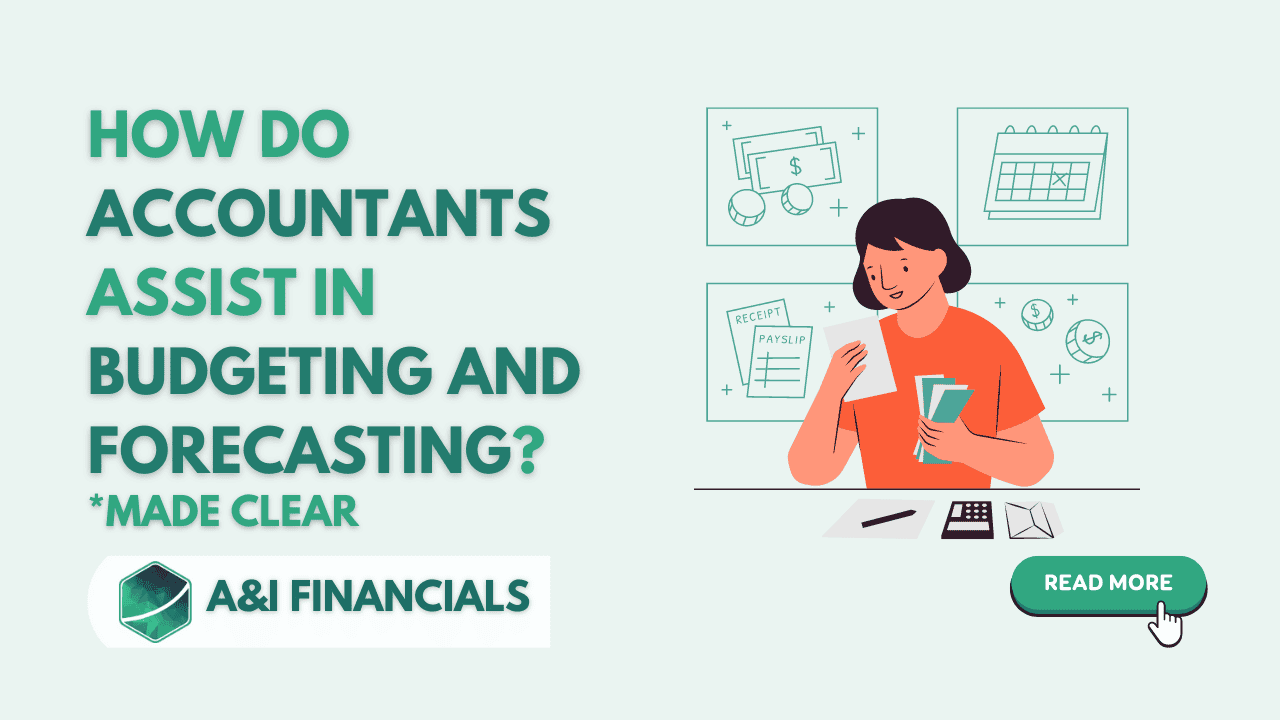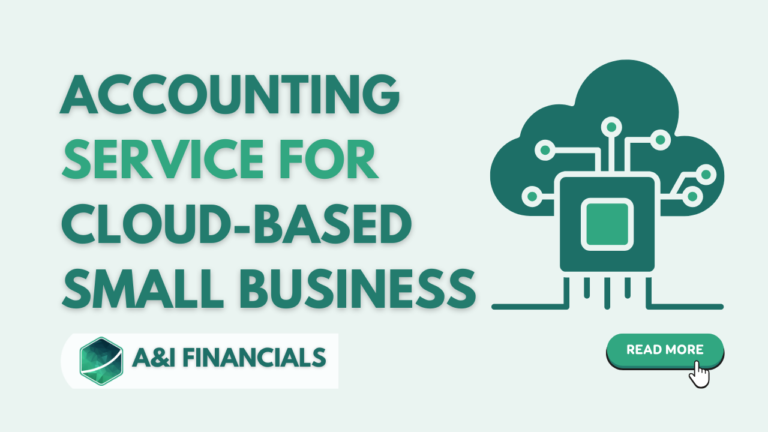How Do Accountants Assist in Budgeting and Forecasting?
When it comes to budgeting and forecasting, accountants play a vital role. They don’t just crunch numbers; they help businesses and individuals understand their financial health, set realistic financial goals, and navigate future challenges. So, how do accountants assist in budgeting and forecasting? Let’s dive into the practical ways they do this.
The Role of Accountants in Budgeting
Budgeting is more than just putting numbers into a spreadsheet. It’s about strategic planning and ensuring that a business or individual has enough resources to meet their financial goals. Accountants are key players in this process because they bring clarity and structure to the often messy world of finance.
Creating a Clear Budgeting Process
Accountants break down the budgeting process into manageable steps. They start by reviewing historical data and financial conditions. By analyzing past spending and income patterns, they create a realistic framework for future spending. This helps in creating a plan that aligns with both short-term and long-term financial goals.
Accountants also take into account the cash flow of the business. A good budget is built around ensuring that cash is available when needed. Accountants look at financial data, including revenue and expenses, to project future cash flow. This is essential for avoiding cash flow issues that could hurt the business.
Setting Realistic Financial Goals
One of the main ways accountants assist in budgeting is by helping clients set realistic financial goals. Whether it’s saving for a new piece of equipment or expanding a business, accountants use their expertise to make sure these goals are attainable. They don’t just set random numbers; they use data to inform these decisions.
For example, if a business wants to expand, an accountant will look at market trends, financial performance, and the current financial state. They’ll help determine how much money is needed, where it will come from, and how long it will take to reach the desired outcome. It’s about being practical and data-driven.
Risk Management in Budgeting
Budgeting isn’t just about planning for success; it’s also about managing potential risks. Accountants are skilled at identifying financial risks that could impact the budget. This includes things like unexpected expenses, changes in market conditions, or fraudulent activity. By incorporating risk management strategies into the budget, accountants help businesses prepare for worst-case scenarios.
Accountants also keep an eye on fraudulent transactions and ensure that security measures are in place to prevent them. In a world where businesses deal with vast amounts of data, the need for robust risk management is more important than ever. Accountants are often at the forefront of monitoring these risks.
The Importance of Forecasting
While budgeting focuses on current and upcoming fiscal years, financial forecasting looks further ahead. It’s about predicting where the business is going financially in the long term. Accountants assist by using historical data and current financial conditions to project future financial performance.
Analyzing Financial Data for Accurate Forecasting
Forecasting is all about the numbers. Accountants take a deep dive into a company’s financial data, such as revenue trends, expenses, and cash flow, to create an accurate financial forecast. They analyze vast amounts of data, searching for patterns and trends to guide their predictions.
For instance, they might analyze seasonal trends in sales to forecast future revenues. If a business tends to make more sales during the holiday season, accountants will incorporate that into their forecast to ensure that resources are available when needed.
Financial Forecasting and Strategic Planning
Financial forecasting plays a critical role in strategic planning. Accountants work closely with business leaders to align forecasts with long-term goals. This helps businesses plan for expansion, new product launches, or other big moves. Forecasting allows businesses to make informed financial decisions based on where they expect to be in the future.
A forecast might show that a company will experience cash flow issues in six months. By identifying this early, accountants can work with management to adjust spending, find new revenue streams, or secure financing before the problem arises.
Monitoring Financial Health Over Time
Accountants also help businesses keep track of their financial health by regularly reviewing forecasts. These forecasts are not static; they are adjusted as new financial data becomes available. Regular monitoring ensures that businesses can react to changes in their financial
environment.
For example, if a company suddenly faces a downturn in sales, accountants will update the forecast to reflect this. They’ll then work with management to make necessary adjustments to keep the business on track.
The Role of Technology in Budgeting and Forecasting
In today’s world, technology plays a significant role in budgeting and forecasting. Accountants are leveraging AI systems and machine learning to streamline their work. By implementing AI, accountants can analyze vast amounts of data quickly and accurately.
Benefits of AI in Forecasting
One of the greatest advantages of AI is its capability to forecast future outcomes by analyzing historical data. AI-driven algorithms can spot trends and patterns that may not be immediately obvious to human analysts. This allows accountants to create more accurate financial forecasts.
For example, AI technologies can analyze customer purchasing patterns in the banking industry. By looking at thousands of transactions, AI can help predict future demand for certain financial products. This gives accountants valuable insights that they can use in their forecasting.
AI and Operational Efficiency
AI doesn’t just help with forecasting; it also improves operational efficiency in the budgeting process. AI-powered tools can now automate tasks like data entry and financial analysis, allowing accountants to concentrate on more strategic responsibilities, such as planning and decision-making.
AI has transformed the way accountants handle large data sets in the financial services industry. By analyzing market trends, identifying fraudulent activity, and monitoring financial conditions, AI helps accountants provide better forecasts and manage risks more effectively.
Challenges of AI in Budgeting and Forecasting
Despite its many benefits, implementing AI in budgeting and forecasting does come with its challenges. A key challenge is making sure the AI model in use is both accurate and reliable. Accountants need to be skilled in both traditional financial analysis and AI to get the most out of these tools.
There’s also the risk of over-reliance on AI. While AI algorithms are powerful, they should be used as a tool, not a replacement for human expertise. Accountants still need to apply their judgment and experience when making final decisions.
How Do Accountants of A&I Financials Assist in Budgeting and Forecasting?
At A&I Financials, accountants help businesses with budgeting and forecasting by offering clear, simple guidance. They review your financial data to create accurate budgets, ensuring your resources are well-managed. With their deep knowledge, they set realistic goals and track spending to keep your business on course.
They also identify risks early, so you can adjust plans before problems arise. A&I Financials’ experts work closely with you, making sure your financial future is secure and aligned with your long-term vision. Their personalized approach ensures you get a budget and forecast that fits your unique needs.
Why Businesses Need Accountants for Budgeting and Forecasting
You might wonder why businesses need accountants when AI and data-driven tools are becoming more common. The truth is, accountants bring something that AI can’t: human experience and judgment.
Providing a Personalized Approach
Every business is unique. While AI-powered tools can analyze data, they can’t provide the same level of personalized customer service that an accountant can. Accountants understand the individual needs of their clients and tailor budgets and forecasts to meet those specific needs.
For example, if a business is in the banking sector, its financial forecasting needs will be different from those of a tech startup. An accountant will take this into account, creating a budget that reflects the unique challenges and opportunities of that industry.
Making Informed Financial Decisions
Accountants are also essential for making informed financial decisions. While AI can provide insights, accountants help interpret that data and apply it to the real world. They use their experience to guide businesses through complex financial landscapes.
Whether it’s deciding when to expand, cut costs, or invest in new markets, accountants provide the expertise needed to make the best decision. They use forecasts to anticipate financial challenges and opportunities, ensuring that businesses stay on track to meet their goals.
Conclusion: The Vital Role of Accountants
In summary, accountants assist in budgeting and forecasting by providing detailed financial analysis, managing risks, and offering personalized financial advice. They leverage both traditional methods and new technologies like AI to help businesses set realistic goals and plan for the future.
Their skill in analyzing financial data and understanding market trends is crucial for businesses to make well-informed financial decisions. While AI tools enhance their work, it’s the accountant’s experience, judgment, and personalized approach that makes them invaluable.
So, whether you’re a small business owner looking to plan for the next fiscal year or a large corporation navigating complex financial conditions, an accountant’s support in budgeting and forecasting is crucial for maintaining your financial health and achieving your long-term goals.






